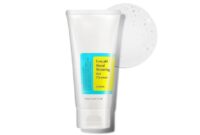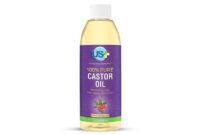Are you tired of seeing ants crawling around your home? Do you want to get rid of them for good? Look no further than the best products for killing ants.
With so many options available, it can be overwhelming to choose the right one for your situation. However, with a little bit of knowledge and research, you’ll be well on your way to an ant-free home.
It’s important to understand the different types of ant products available before making a purchase. There are baits, sprays, powders, and even natural and DIY solutions. Each type has its own advantages and disadvantages, so it’s important to choose the one that will work best for you.
Keep reading to learn more about the best products for killing ants and how to choose the right one for your needs.
Understanding the Types of Ant Products Available
You’ll want to familiarize yourself with the various ant products on the market, so you can select the most effective one for your needs. Understanding ant behavior and anatomy can be helpful in making an informed decision.
For example, ants are social insects that live in colonies, and their behavior is driven by chemical signals called pheromones. Some ant products use these pheromones to attract ants to bait stations, where they consume poison and bring it back to the colony.
One common mistake when using ant products is not using enough of the product. Ants can be persistent, and a few crumbs left behind can make it difficult to control the infestation. It’s important to follow the instructions carefully and apply the product in the areas where ants are present.
Another mistake is using the wrong type of product for the type of ant infestation. Different ant species have different preferences for food and nesting sites, so it’s important to choose a product that targets the specific type of ant you’re dealing with.
By understanding ant behavior and avoiding common mistakes, you can choose the best product for killing ants and effectively control the infestation.
Choosing the Right Ant Killer for Your Situation
When dealing with an ant infestation, it’s important to consider the specific circumstances in order to choose the most effective solution. One factor to consider is ant behavior analysis. Some ant species, like carpenter ants, tend to nest in wood, while others, such as pavement ants, nest in soil or under stones. Knowing the behavior of the ants in your home can help you choose the right ant killer.
For example, if you have carpenter ants, you may need to use a product that penetrates wood to reach the nest. Another important factor to consider when choosing an ant killer is prevention strategies. Simply killing the ants that are already in your home won’t solve the problem in the long term.
It’s important to use a product that not only kills ants but also prevents them from returning. Look for ant killers that contain ingredients that repel ants, such as citrus oils or vinegar. Additionally, make sure to clean up any food or water sources that may be attracting ants to your home.
By combining prevention strategies with the right ant killer, you can effectively eliminate your ant problem and prevent future infestations.
Using Baits to Target the Entire Colony
If you’ve ever played the game ‘Whack-a-Mole,’ you know that targeting just one or two moles won’t solve the problem – the rest will keep popping up. The same goes for ant infestations, which is why using baits to target the entire colony is a smart strategy.
The benefits of baiting are that it can eliminate the entire colony, including the queen, and it’s also a safer option than using sprays or dusts that can harm humans and pets. Baits work by attracting worker ants, who then bring the poison back to the colony, ultimately killing off the entire population.
Common bait ingredients include boric acid, hydramethylnon, and fipronil. Boric acid is a natural substance that’s safe for pets and humans but can be toxic to ants. Hydramethylnon and fipronil are synthetic chemicals that can be more effective but also potentially harmful.
When using baits, it’s important to place them in areas where ants are commonly seen, such as along baseboards or near entry points. Additionally, avoid placing baits in areas where food is prepared or consumed to prevent contamination.
By properly placing ant baits for maximum effectiveness, you can eliminate the entire colony and prevent future infestations.
Sprays and Powders for Immediate Results
For a quick solution to your ant problem, sprays and powders are an effective option. They work immediately to kill ants on contact, making them a great choice for those who want to see results right away.
However, it’s important to note that these products only provide a temporary solution. Long term strategies, such as using baits, are necessary to target the entire colony and prevent future infestations.
When using sprays or powders, it’s important to follow safety considerations to protect yourself, your family, and your pets. Be sure to read the label carefully and use the product as directed.
Keep children and pets away from the area until the product has dried or the area has been thoroughly cleaned. With the right precautions, sprays and powders can be a valuable tool in your ant control arsenal.
Natural and DIY Solutions for Killing Ants
You can take a more natural and hands-on approach to control ants by utilizing DIY ant deterrents and eco-friendly ant control methods.
For instance, you can make a simple mixture of equal parts vinegar and water and spray it directly on the ants’ trails and entry points. The strong scent of vinegar will repel the ants and prevent them from coming back.
Another option is to sprinkle cinnamon, black pepper, or cayenne pepper around areas where ants are commonly seen. These spices work as natural ant repellents and can also mask the scent trails that ants use to navigate.
If you’re dealing with an indoor ant problem, try creating bait stations using a mixture of borax and sugar. Mix one part borax with three parts sugar and add enough water to form a thick paste.
Place the bait in small containers or on pieces of cardboard near ant trails and wait for the ants to take the bait back to their colony. The sugar will attract the ants to the bait while the borax will slowly poison the colony.
By using DIY ant deterrents and eco-friendly ant control methods, you can effectively eliminate ants from your home without harming the environment or using harsh chemicals.
Frequently Asked Questions
Are there any ant products that are safe for pets and children to be around?
If you’re looking for ant products that won’t harm your pets or children, you’ll be happy to know that there are plenty of pet-friendly options available.
Non-toxic alternatives are a great choice for households with curious pets or young children who like to explore. These products use natural ingredients like peppermint oil or vinegar to repel ants without harming your family members.
Additionally, there are also bait stations available that are designed to be placed in areas where pets and children can’t reach them. These bait stations use a slow-acting poison that only affects ants, so they’re completely safe for your loved ones.
Overall, it’s important to prioritize the safety of your family when dealing with an ant infestation, and these pet-friendly and non-toxic options can help you do just that.
Can ant killers be used on outdoor ant colonies?
If you want to control an outdoor ant colony, there are a few different methods you can try.
First, bait stations can be effective in attracting ants and poisoning them with a slow-acting toxin. Just make sure to place the stations out of reach of pets and children.
You can also try using a liquid insecticide spray, which can be sprayed directly onto the colony entrance.
Another option is dust insecticides, which can be sprinkled around the colony. However, these methods may not be as effective as bait stations, as they don’t always reach the entire colony.
Ultimately, the effectiveness of different ant killing methods will depend on the specific type of ant and the size of the colony.
Is it possible for ants to develop a resistance to certain types of ant killers?
Have you ever heard of the phrase ‘survival of the fittest’? Well, it seems that ants have taken that mantra to heart. Unfortunately for us, this means that certain ant colonies may develop a resistance to certain types of ant killers over time.
This resistance development can be a frustrating obstacle to overcome, but fear not, there are effective alternatives to consider. One option is to switch up the type of ant killer you’re using, as different chemical compounds may work better on resistant colonies. Another option is to try natural remedies, such as a mixture of vinegar and water or diatomaceous earth.
While it may take some trial and error, rest assured that there are still plenty of ways to eliminate ant infestations, even if some colonies seem to have a leg up on us.
How long does it take for ant killers to start working?
When it comes to ant killer effectiveness, there are a few factors that can affect how quickly the product starts working.
One important factor is the type of ant species you’re dealing with, as some may be more resistant to certain types of ant killers.
Another factor to consider is the size of the ant colony and the location of the nest, as larger colonies may require more time for the ant killer to fully eliminate all ants.
Additionally, environmental factors such as temperature and humidity can also impact the speed of ant killer effectiveness.
In general, most ant killers will start working within a few hours to a few days, but it’s important to follow the instructions carefully and be patient for the product to fully take effect.
Are there any risks to using natural or DIY solutions for killing ants?
When it comes to killing ants, natural or DIY solutions may seem like a more appealing option than chemical-based products. However, it’s important to be aware of the potential risks associated with these methods.
For example, some essential oils or herbs that are commonly used as ant repellents can be toxic to pets or children if ingested. Additionally, homemade ant baits or traps may not be as effective as commercial products, which could lead to continued ant infestations.
If you’re looking for alternatives to chemical solutions, consider using physical barriers like caulk or weatherstripping to seal off entry points, or using non-toxic baits like borax and sugar. While natural and DIY solutions may seem like a good idea, it’s important to weigh the potential risks and effectiveness before deciding on a course of action.
Conclusion
So, there you have it – the best product for killing ants depends on your situation and preferences. Whether you choose baits, sprays, powders, natural remedies, or DIY solutions, make sure you follow the instructions carefully and keep safety in mind.
Did you know that ants have been around for over 100 million years and are one of the most successful groups of insects on the planet? With over 12,000 species and a total biomass that exceeds that of humans, ants are truly remarkable creatures.
However, when they invade your home or garden, they can become a nuisance and even a health hazard. With the right ant killer, you can eliminate these pests and enjoy a pest-free environment.
So, don’t hesitate to try out some of the products we’ve discussed and see which one works best for you. Happy ant-killing!


